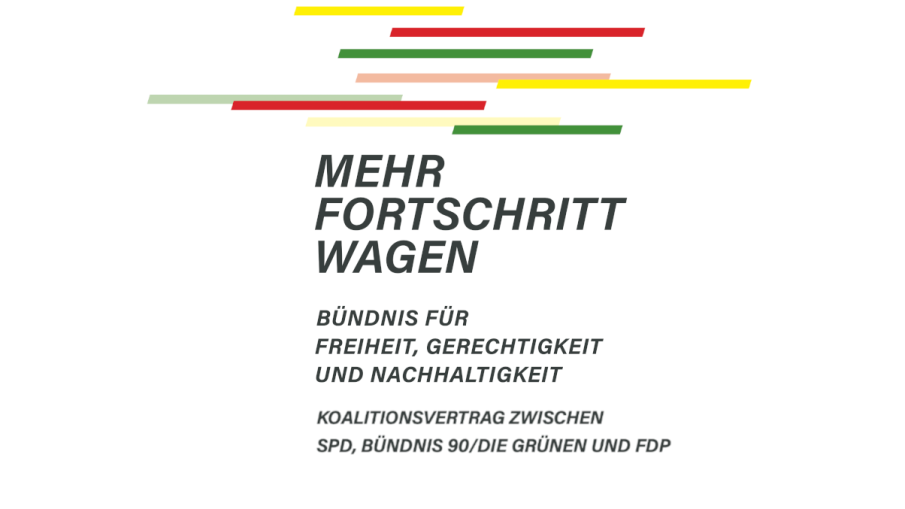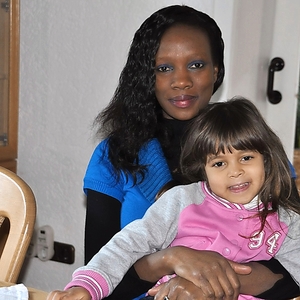The new traffic-lights (Ampel) coalition government comprising of SPD, FDP and the Greens signed their coalition agreement in November and they have ambitious plans for their Immigration Policy.
The Agreement’s main objective is to simplify and digitalise the visa/permit/naturalization issuance process and reduce the bureaucracy.
Naturalisation
The government plans to allow naturalisation after 5 years or after 3 years in the case of special integration achievements. Currently naturalisation is possible after 8 years and reduced up to 6 years for those who have made further integration efforts.
For children born to two foreign parents, they will qualify for German citizenship when at least one parent has been living in Germany for at least 5 years. Currently, a parent should have lived in Germany for 8 years for their child to get German citizenship.
Permanent Residence Permit
In future it should be possible to get a Permanent Residence Permit (Niederlassungserlaubnis) in 3 years. Currently you can get it after 5 years. For EU Blue Card holders, you only need 33 months before you can get it.
Losing your Residence Permits
The Agreement plans to remove restrictions currently set for temporary stays abroad that can render your residence permit invalid. In a move to encourage labor migration. This new rules will allow foreigners holding a German residence permit to easily move in and out of the country for work or familial obligations without losing their permit. The current law only allows you a maximum stay of 6 months before your residence permit is considered invalid. Applying for long term ventures abroad e.g. university or new job, also makes your permit invalid. This is set to change.
Family Reunion Permits
For Spouses:
Unlike before when spouses had to provide a language certificate to get the family reunion permit, it will henceforth be possible to provide the language certificate after arrival in Germany. This is a welcome change considering German classes in some countries are too expensive, for such people it will be possible to attend the language classes in Germany then present the certificate to the Ausländerbehörde.
For refugees:
The family reunification process and requirements for refugees on subsidiary protection will be equated to the one for GFK-refugees. Currently only the GFK-refugees have a right to family reunification.
GFK-refugees, are persons who fit the definition of a refugee as defined by the Geneva Refugee Convention of 1951, while the refugees on subsidiary protection are those that do not fit the Convention definition but who would be at risk of serious harm if they returned to their country of origin.
For victims of domestic violence
This government plans to draft a more precise regulations for victims of domestic or partner violence who only have a derived right of residence. This is a welcome move as it will reduce the number domestic violence victims who continue to stay with their violators in fear of losing their residence permit.
For victims of human trafficking
Victims of human trafficking will be granted a right of residence regardless of their willingness to testify.
The Duldung System
The Duldung System in Germany is one complicated and inconsistent system but here are some welcome planned changes:
For Families on a Duldung in accordance to § 25b AufenthG:
Well integrated families who have lived in Germany for four (if living with a minor) to six years will be allowed to apply for a residence permit. This means families will no longer be put on a Duldung for longer than six years. This reduced the duration of stay before eligibility from 8 to 6 years for all and from 6 to 4 years when living with a minor.
For Young People on a Duldung in accordance to § 25a AufenthG:
Young people who flee to Germany will up to the age of 27 be allowed to get a residence permit after three years of living in Germany. This reduces the time of stay from 4 to 3 years and extends the age limit from 21 to 27 years of age.
For Young People doing an Ausbildung on a Duldung in accordance to § 60c AufenthG:
For young people on asylum doing an Ausbildung, the coalition government seeks to give them and the companies that employ them more security and will therefore switch this Duldung into a Residence Permit (Aufenthaltserlaubnis).
Furthermore, legal provisions shall be made to allow such individuals submit an affidavit to help in the clarification of their identity. Those who do not help the authorities in the process of clarifying their identity, will not have their time on a Duldung count towards a right to stay.
Chancen-Aufenthaltsrecht
Individuals who on 1st January 2022, have:
- been living in Germany for the last five years on one Duldung after another;
- not committed a criminal offense and
- are committed to free democracy
should be able to receive a one-year probationary residence permit in order to to meet the other requirements for a right to stay during this time (in particular securing a living and proof of identity in accordance with §§ 25 a and b AufenthG).
Increased Funding for Integration Courses and Programs
The new government is planning to increase funding for the integration courses and programs offered across the country and increase their accessibility for foreigners coming to Germany. Furthermore, they look forward to lowering the hurdles for children moving to Germany to join school
Reporting Requirements for Undocumented Persons
The government has promised to look into the reporting requirements for undocumented persons, especially when it comes to seeking medical care. This seeks to ensure that everyone gets the appropriate medical care without fear of being handed over to the authorities for lack of documentation.
Furthermore, this will also look to integrate psychosocial care for refugees.
End of the AnkER-Zentren
The AnkER-Zentren, that were developed as part of the 2018 Coalition Agreement, will be phased out. The AnkER is an acronym for Ankunft, kommunale Verteilung, Entscheidung bzw. Rückführung i.e. arrival, municipal distribution, decision or repatriation. These controversial centres were meant to centralise the handling of new refugees and to quickly decide on whether to allow them to stay or send them back to where they came from.
Improved Accelerated Asylum Procedure
In a move to accelerate the asylum procedure as well as make it fairer, the government plans to draft a new law to ensure the decision making process is standardised.
The Federal Office for Migration and Refugees (Bundesamts für Migration und Flüchtlinge – BAMF) will be required to make detailed rulings anchored in law, to ensure the law courts can quickly make a decision during appeals.
Asylum applications from countries with low recognition rates are prioritized to speed up the process.
Asylum Seekers Counselling Centres
In a move to help the quality and the speed of the asylum application process and also support applicants, the government plans to setup independent Counselling centres independent of the authorities handling the process. These centres will help to inform applicants on how the process works in Germany, the necessary steps, documents to fill out and authorities to get in touch with.
Asylum Seekers Benefits Act
We will further develop the Asylum Seekers Benefits Act (Asylbewerberleistungsgesetz) in the light of the case law of the Federal Constitutional Court. We want to make access to health care less bureaucratic for asylum seekers. Minor children are to be exempted from benefit restrictions or reductions.
Deportations
Not everyone who comes to us can stay. We are launching a repatriation offensive to implement departures more consistently, in particular the deportation of criminals and people who are at risk. In the future, the federal government will give the federal states more support for deportations. We will live up to our special humanitarian responsibility and, as a matter of principle, will not take children and young people into custody pending deportation. Voluntary departure always has priority. We want to provide better financial support for state return support for people without a right to stay. In order to promote voluntary departures, we want to systematize and strengthen state and independent return counseling. We are striving for the competent supreme federal authority to be able to issue a temporary national ban on deportations for individual countries of origin.
Dual Citizenship
Many people were excited about this point. However, the coalition agreement did not give any details on what exactly is set to change. However, the wording in the document alludes to inheritance meaning that provisions will probably only be made for children born and raised in Germany and not adults or children who take up German citizenship. But I might be wrong, let’s wait for the new laws.






